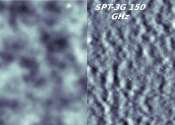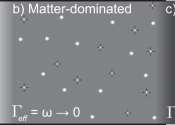Astronomers' simulations support dark matter theory
Computer simulations by astronomers support the idea that dark matter—matter that no one has yet directly detected but which many physicists think must be there to explain several aspects of the observable universe—exists, ...









